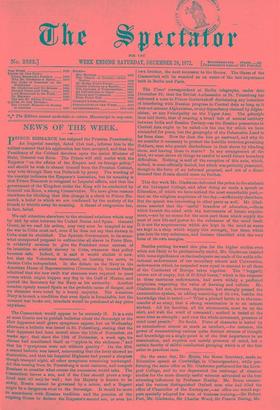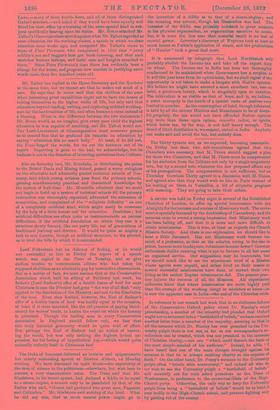On the same day, Mr. Bruce, the Home Secretary, made
an Education speech at Cowbridge, in Glamorganshire, while per- forming the same office as Mr. Gladstone performed for the Liver- pool College, and he too deprecated the exchange of classical studies for the more directly useful sciences advocated as the best educating influences by Professor Huxley. Mr. Bruce enumer- ated the various distinguished Oxford men who had filled the office of Chancellor of the Exchequer,—an office one would sup- pose specially adapted for men of business training,—Sir Robert Peel, Mr. Gladstone, Sir Charles Wood, Sir Francis Baring, Mr.
Lowe,—many of them double firsts, and all of them distinguished Oxford scholars,—and asked if they would have been equally well fitted for their office by a training of the more special kind in sub- jects specifically bearing upon its ditties. Mr. Bruce attacked Mr. Talbot's Glamorganshire speech against what Mr. Talbot regarded as over-education for the working-classes, a speech to which we drew attention some weeks ago, and compared Mr. Talbot's views to those of Piers Plowman, who complained in 1360 that " every cobbler's sou and beggar's brat got book-learning, and that such wretches became bishops, and lords' sons and knights crouched to them." Since Piers Plowman's time there has evidently been a change for the worse, and progress now consists in justifying anew words more than five hundred years old.



































